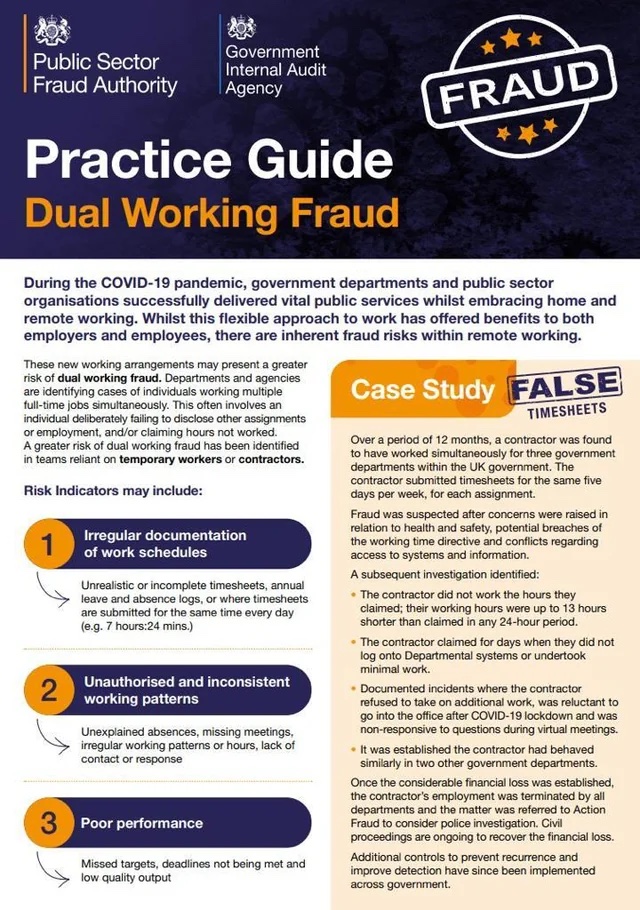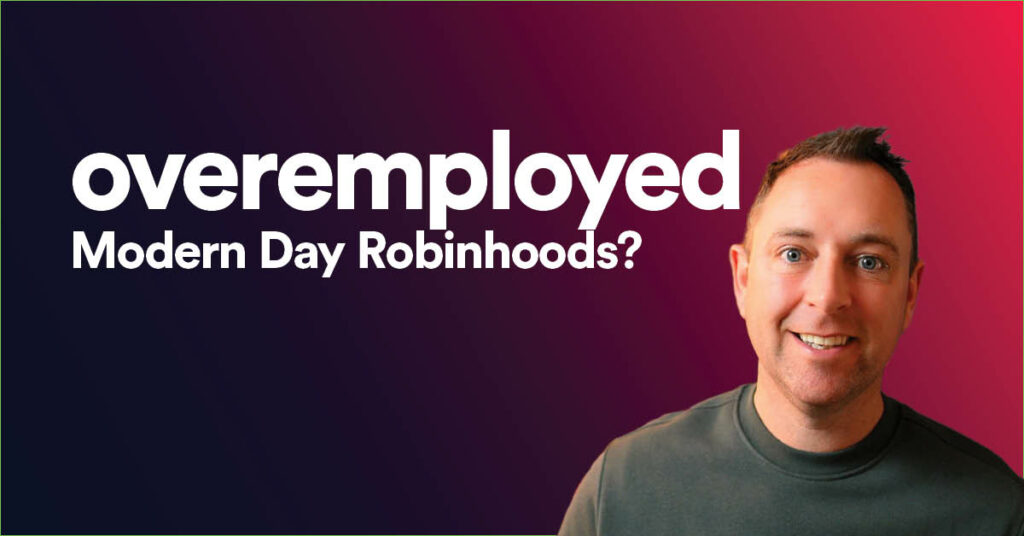Recently I’ve become fascinated with a trend called overemployed. Now that might be a new term for you, but I promise it had me trawling the internet for weeks and my jaw dropping on more than one occasion.
What is overemployed?
Overemployed is when people work 2 or 3 jobs and I’ve read about one person who has 5. Now that might sound normal from someone who talks about side hustles a lot. The difference is that these overemployed people are working these jobs simultaneously in a 40-hour week or less and unbeknownst to the respective employers.

Generally speaking, those who seek to be overemployed work in tech-related fields with project-based roles such IT, programming and engineering, but commonly accounting is being discussed as a possible overemployed route.
What fuelled the rise of overemployment?
In short, working from home. Not being present in the office during the pandemic has provided certain opportunities for employees to use their “free” time in their original job to work a second or third role.
Those who find themselves with dead time in their job 1 (J1), or work at a lower pace to elongate project deadlines, fill this void with a second income-producing role rather than doom-scrolling Facebook or Instagram.
The benefits for the employee are easy to understand. Multiple paycheques each month go a long way to supercharging your path to financial freedom and for the first cohort of overemployed, this does seem to be a primary driving force.
Rising inflation, increased cost of living and lifestyle inflation all have an effect on household finances. Many would argue that the trend of becoming overemployed was born out of necessity, rather than greed.
In addition, with the significant and sustained increase in tech redundancies this year, many overemployed are seeing no loyalty from their respective organisations and are using their multiple jobs to hedge against losing their primary income from employment. And I understand that. I know great employees, through no fault of their own, have been made redundant and are looking for work.
In many organisations, it is true that “you’re just a number” and I’ve seen it first-hand where decades of loyalty and effort are ultimately rewarded with the queue at the job office.
There is of course an argument that you should work the system that would replace you in an instant, the moment you no longer are able to do your job.
However, being an employee is a contractual obligation. You are trading your efforts for an income and output from your activities is expected. From a legal standpoint where does overemployment sit?
What do HR professionals say about those who are overemployed?
I reached out to a past client of mine who is a partner in a leading HR consultancy. Their business supports others right across the UK & Ireland. Firstly I wanted to check that overemployment isn’t some made-up thing on the internet. Because you know, you can’t trust everything you read online.
And yes during the course of their work, they’ve come across this happening. It’s not widespread, but it does happen.
Continuing the conversation, I asked what their take on overemployment was, from a contractual standpoint.
“Unless you have total flexibility of hours and how you carry out your job in your contract, it’s fraud. Important for employers to have good written contracts of employment in place so there is no ambiguity. As new ways of working bed in it will be interesting to see what other legislation governments will enact.”
Conversely many overemployed would argue that they do “enough” at each of their jobs to justify their roles, whether that’s to the fullness of their ability or not. Those who are overemployed are working the system. A system that is stacked in favour of the organisation and not the employee.
What does the UK Government think about overemployment?
The UK Government has already released a dual-working fraud practice guide. Why did they do this? Well, they caught one person working 3 government jobs at the same time. In response, they have started to look in-depth at dual working. What is notable is that the focus of the case study surrounds timesheet submission. Working 3 simultaneous roles it was identified that the timesheets submitted could not have matched the claimed hours.

As a response to the investigation, the matter was referred to Action Fraud to consider a police investigation. Civil proceedings are ongoing to recover the financial loss.
The dark side of living an overemployed life
Deception is the trigger word that comes to mind when I think about living an overemployed life. Living an endless lie in two or more roles brings with it a host of challenges and dilemmas that must be faced daily. Is the stress that comes with it justifiable?
Many overemployed workers do “enough” to stay in their role, often shirking additional responsibilities or working to their full potential. And while that alone isn’t enough to consider an employee as overemployed there are general signals that may identify this.
- Employee rejects company healthcare or benefits. Having multiple policies might be identified by the healthcare provider and flagged to HR
- Employee has scant linkedin information or a private profile
- Slow response times or unavailability to meetings with no explanation.
For all its financial benefits, being overemployed can cause considerable stress. Losing one job is an issue, but losing multiple jobs and facing a civil legal case may be a risk worth taking. But for many its a step too far.
Overemployed round up
I understand the reasons for overemployment from the employees perspective. Firstly and primarily there’s the financial benefit. Earning a multiple of your normal income is often a huge catalyst in the efforts to build wealth. And why not take all the money you can?
From an employer’s perspective, you’re paying someone to do a job. And you expect them to do so to the best of their ability. In business, many of us want more from our employees, and maybe that time has passed. Maybe not. Is good enough, enough?
What do you think about those who are overemployed? Modern-day robinhoods or frauds? Let me know in the comments below. And if you want to read up a little more and make your own decision, head over to https://www.reddit.com/r/overemployeduk/ and grab a coffee.


